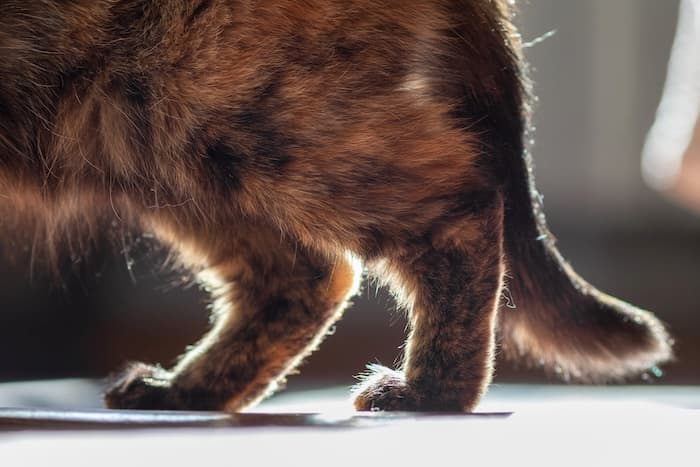Arthritis is not just a human ailment; dogs and cats in Smyrna, Georgia, can also suffer from this common joint disorder. Yet, unlike humans who can articulate their discomfort, our furry friends often silently endure the pain. It’s crucial to detect the subtle signs of arthritis early to ensure our pets receive the care they need.
Here are seven signals to look for that might indicate your beloved pet is suffering from arthritis. By observing these, you can take proactive steps to manage and alleviate your pet’s suffering, making every wag of their tail as jubilant and pain-free as can be.
1. Reluctance to Move
Do you notice your pet finding it hard to get up from lying down? Perhaps they’re not as eager to chase after a ball or play. Reluctance to move could be a sign that your pet is finding it painful to engage in activities they once loved. Whether they’re having trouble jumping into the car or climbing stairs, it’s a clear indicator that those joints might be hurting.
2. Limping or Favoring a Limb
If your normally energetic pet begins to favor one limb, it could mean they’re feeling pain in that particular area. They might limp while walking or even hold up a paw completely. This behavior is their way of compensating for the discomfort they feel and should never be dismissed as a passing phase.

3. Changes in Behavior
Arthritic pain can have psychological effects on our pets. Look out for changes in behavior such as increased irritability or unusual aggression, especially when you touch or approach specific parts of their body. On the flip side, you might also notice your usually active pet becoming more lethargic, sleeping more, or displaying less enthusiasm for physical activity.
4. Stiffness or Difficulty Standing
Arthritis can cause severe stiffness in the joints, particularly after your pet has been resting for a while. If you see them struggling to stand or walk with a hunched back and stiff movements, it’s a key sign that arthritis could be the culprit. Encouraging gentle movement can help to alleviate some of the stiffness, but veterinary intervention is necessary to properly manage the condition.
5. Visible Joint Swelling or Warmth
Check your pet’s joints for any signs of swelling or warmth. Arthritic joints can often be inflamed, with your pet’s body trying to protect and heal the area. Carefully press the joints gently, feeling for any abnormal warmth, and be on the lookout for any misshapen or swollen areas—it’s a call to consult your veterinary team at VETERINARYCARE At Belmont™.
6. Yelping or Whimpering
Pets may vocalize to communicate pain. If your pet suddenly yelps or cries out when performing actions that once brought them joy, it’s a sure sign that they’re hurting. This could be any kind of movement—for example, climbing onto the bed, jumping off the couch, or even being touched in a specific spot.

7. Difficulty with Hygiene
Cats, in particular, are known for their fastidious grooming. If you notice your feline friend is no longer keeping up with their grooming habits, it might be because they’re finding it painful to bend and contort their bodies as they usually would. Poor hygiene, matting in their coat, and even an unusual odor could be subtle indicators of discomfort due to arthritis.
Growing Older Doesn’t Have to Mean A Life Filled with Discomfort
It’s a common misconception that joint pain is just a feature of old age for pets. However, quality of life for your pet can be significantly improved with interventions such as medication, laser therapy to ease joint inflammation, and in severe cases, surgical options. Aged pet residents of Smyrna do not need to silently suffer.
Early Detection and Veterinary Care
The importance of early detection cannot be overstated. If you suspect your pet may have arthritis, it’s imperative to schedule a check-up with your veterinarian. Early intervention can make a significant difference in managing your pet’s pain and allowing them to enjoy an active and comfortable life.
Don’t wait until the signs are glaringly obvious to take action. If your pet shows even one of these signs, it’s time to get them checked out. A proactive approach to your pet’s health will ensure many more years of joyful companionship. Call VETERINARYCARE at Belmont ™ at 678-581-4055 to schedule your pet’s appointment and put your furry friend on the path to a more comfortable and active life.
Image credits:
19msa05 / iStock / Getty Images Plus
Roman Chekhovskoy / iStock / Getty Images Plus
wirestock / Freepik

